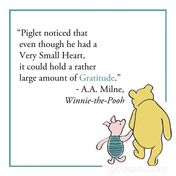
An apology comes from 2 places. One is a place of humbly accepting that you've wronged someone - there are many examples of this, from feeling remorse at what you've done, to realising you've hurt someone, or simply empathising with some one else's pain or grief. The second is when you automatically put yourself last, and put yourself down, in every social situation you find yourself in. The first is healthy, and the second lacks the boundaries that help to maintain our sense of worth.
Arriving at an appointment with minutes to spare and apologising for being late. Ordering coffee and apologising for answering yes when asked if you want sugar. Apologising when you haven't seen a movie being discussed at work. Apologising to your partner for being emotionally distant, for being unable to attend a social function out of fear - for finally cracking a little and wanting to share some of your burden with them. Basically holding yourself back from seeking help from those around you, and apologising when you don't manage to contain or control your fear.
These are examples of the second kind of apology, one that says little about the real social interaction, but speaks volumes about your sense of worth. While you may feel apologising is an appropriate way to interact, it really moves the focus, putting a burden on the person you're apologising to, forcing them to soothe or acknowledge you!
Gratitude involves stating your worth. Stating your worth is obviously ideal, but how on earth to do that if you actually do feel unworthy?
The trick is to swap the apology around to gratitude, something which is considered to be an important factor in happiness.

Changing your apology around to gratitude can impact in several ways:
- Gratitude makes the exchange about the receiver of the gratitude, shifting the focus. An apology requires the apologee to acknowledge and to forgive ("That's OK, I don't mind." kind of thing) making the exchange all about the apologiser seeking reassurance, an unpleasant irony when you become aware you're actually making it harder to interact with you!
- The person receiving the gratitude is now acknowledged in their own right - their offering noticed, their value stated.
- Practising gratitude has the potential to shift the apologiser's view of and action in the world. The onus is less on one's own ineptitude and worthlessness, to acknowledging that others are actual there for you in the bigger world.
Practising gratitude can break a cycle. You can bring awareness to your interactions, and make a decision each time to be who you prefer - the one who is grateful, or the one who is apologetic.
Here's a short survey to give you an idea of your gratitude level. You can open a free account on this website operated by the Happiness Institute at the University of Pennsylvania and complete all manner of happiness related questionnaires.


 RSS Feed
RSS Feed